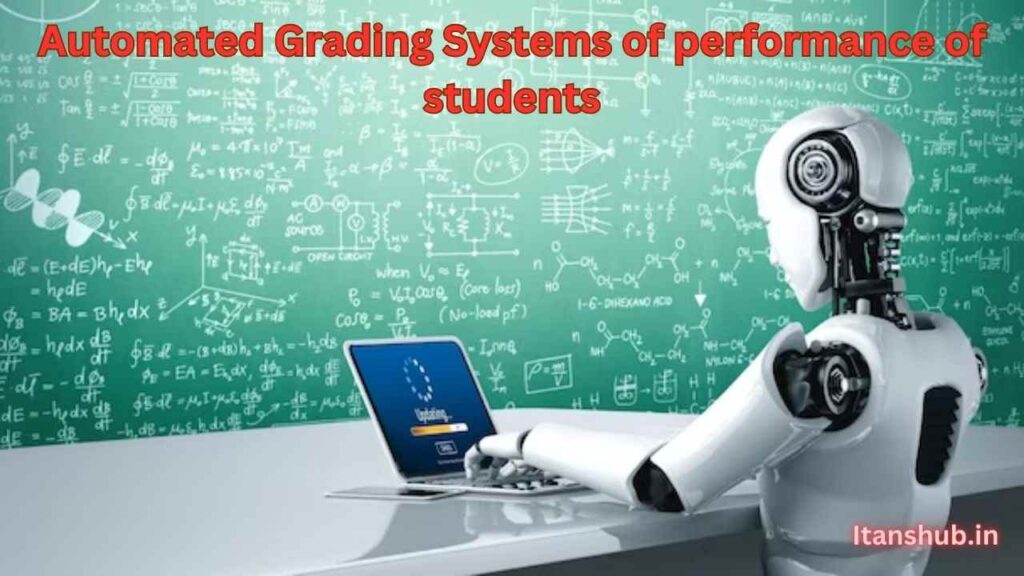Table of Contents
ToggleSummary
Artificial Intelligence (AI) has become an indispensable tool in various industries, and the field of education is no exception. The ability of AI to analyses vast amounts of data (row data), make predictions, and adapt to individual needs has revolutionized the way we approach learning. In this article, we will explore the different ways AI can help in education, such as personalized learning, real-time feedback, and automated grading systems and so on.
By harnessing the power of AI, both teachers and students can benefit from enhanced educational experiences. So without farther ado, let’s get started (how can artificial intelligence help in education)…

What is AI, really?
Before delving into the specific applications of AI in education, it’s important to understand what AI actually is. AI refers to the simulation of human intelligence in machines that are programmed to think and learn like humans. These machines can perform tasks that typically require human intelligence, such as speech recognition, problem-solving, and decision-making. AI systems are designed to improve their performance over time through learning from data and experiences.
How can artificial intelligence help in education?
The integration of AI or artificial intelligence in education holds immense potential for transforming the learning landscape. By leveraging AI technologies, educators can customize the learning experience for each student, provide real-time feedback, and streamline administrative tasks. AI can also help bridge learning gaps, improve accessibility, and prepare students for the challenges of the future and more. Let’s explore some specific ways in which AI can benefit education.
Personalized Learning-Like a Tutor, but Smarter

One of the key advantages of AI in education is its ability to personalize the learning experience for individual students. AI-powered algorithms can analyses vast amounts of data about a student’s learning style, preferences, strengths and weaknesses, and more. Based on this information, the system can generate personalized recommendations, resources, and learning pathways tailored to the student’s specific needs.
This personalized approach empowers students to learn at their own pace, reinforces their strengths, and provides targeted support for areas that require improvement. It will change the whole system, because it has ability.
Students on Unique Learning Journeys
Each student has a unique learning journey influenced by factors such as prior knowledge, interests, preferred learning methods and more. AI tools can help educators gain valuable insights into students’ learning patterns and adapt their teaching strategies accordingly. That is good things. For example, by tracking student progress time to time, AI algorithms can identify areas where students struggle the most and suggest alternative approaches to address their individual needs for better understanding.
This ensures that students receive targeted instruction and support, leading to more effective and engaging learning experiences. These technique will help allot to students to grab valuable knowledge from digital resources.
Real-time Feedback that Beats the Red Pen
Traditionally, students receive feedbacks on their assignments and assessments long after they have completed them. This delay can hinder their progress and limit the opportunities for timely improvements of students. AI technologies offer a solution by providing real-time feedbacks of students, allowing students to receive immediate insights on their works. Whether it’s analysing the quality of their writing, providing suggestions for improvements, or grading multiple-choice questions, AI can offer personalized feedback that goes beyond what a single teacher can provide.
This not only saves time but also encourages students to actively engage in the learning process and make continuous improvements. It will change the way of study of students. And it answers “how can artificial intelligence help in education”.
Automated Grading Systems of performance of students

One of the most time-consuming aspects of teaching is grading assignments and tests. With the help of AI, this labor – intensive task can be automated, saving teachers valuable time and energy, That is . AI-powered grading systems can analyzes written responses, essays, and even codes, providing consistent evaluations and reducing the subjective nature of grading system. This enables teachers to focus more on providing personalized instructions and supports to students.
Additionally, automated grading systems can generate detailed analytics and reports of students, offering valuable insights into student performance and areas for improvement. It is also answers the question “how can artificial intelligence help in education”.
SUMMARY (Happy Teachers, Happy Students)
By automating time-consuming tasks and providing personalized supports by artificial intelligence, AI can alleviate the burden on teachers and create a more positive environment for both educators and students, that is most important thing. “how can artificial intelligence help in education”
When teachers have access to AI-powered tools that assist in lesson planning, resource discovery, and grading, they can devote more time to engaging with students, fostering meaningful connections, and addressing individual needs. This ultimately leads to happier and more motivated educators who can make a significant impact on their students’ learning journey. It has ability to revolutionize teaching techniques.
FAQs
A. How AI Respects Your Privacy in Education Systems?
AI technologies in education must prioritize student privacy and data protection of individuals. It is essential to ensure that any data collected is encrypted form, anonymized, and used solely for educational purposes. Educational institutions and AI providers must implement strangest security measures to safeguard student information and comply with relevant regulations such as the General Data Protection Regulation (GDPR). (how can artificial intelligence help in education)
B. What is the Importance of AI in Education?
AI in education offers numerous benefits, including personalized learning, real-time feedback, and automated grading system in education. By tailoring the learning experience to individual students, AI promotes engagement, improves learning outcomes, and helps bridge learning gaps. It also empowers teachers by automating administrative tasks, allowing them to focus on personalized instruction and support. In this way we can also answer ‘how can artificial intelligence help in education’.
C. What is the Role of Artificial Intelligence in the Future of Education?
Artificial intelligence is poised to play a significant role in shaping the future of education. As technology continues to advance, AI can enhance the efficiency and effectiveness of teaching and learning processes of students.
From intelligent tutoring systems to adaptive learning platforms, AI has the potential to revolutionize education by providing personalized, accessible, and dynamic learning experiences. It is much better than existing systems.
D. Is AI Good or Bad for Education?
Like any technology, AI in education is not inherently good or bad. Its impact depends on how it is implemented and used. When used ethically and responsibly, AI can greatly benefit education by enhancing personalized learning, automating administrative tasks, and providing valuable insights. However, concerns regarding transparency, bias, and data privacy need to be addressed to ensure that AI serves the best interests of students and educators. These are most important things to address the education.
E. How Can Artificial Intelligence Help in Education?
Artificial intelligence can help in education by enabling personalized learning experiences, providing real-time feedbacks of various students, automating grading systems, and reducing the workload on teachers.
By leveraging AI technologies, education can become more engaging, efficient, and effective, ultimately equipping students with the skills and knowledge they need to thrive in an increasingly complex world.( how can artificial intelligence help in education)
You Can Read Also This Articles 👇👇👇
The main objective of industrial robots
What are The uses of autonomous robots
What is the work of virtual assistant
What Are Two Successful Application Of AI In Business
Future of AI In Education System
How does AI help in healthcare
How to use machine learning in healthcare
How are autonomous vehicles testbed
How can Artificial intelligence be used in the world of education

I am an Engineer and Passionate Blogger, who loves to share Deep, purified and Latest Information about IT (Information Technology) sector. Read More….

Leave a Reply